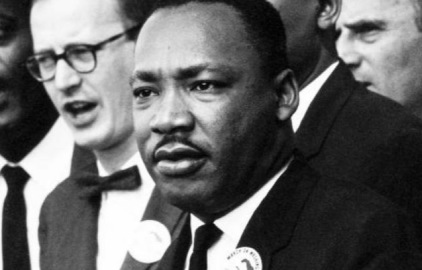
The Great Smoky Mountain Journal
Source:
Tuesday, January 01, 2019 02:44 PM
Today Marks 50th Anniversary Of Death Of Martin Luther King Jr. In Memphis
Yolanda, Martin, Dexter and Bernice King lost their father.
The loss has not gotten easier in 50 years, but his three surviving children each bear it on their own terms.
“That period, for me, is like yesterday,” said Dexter King, now 57. “People say it’s been 50 years, but I’m living in step time. Forget what he did in terms of his service and commitment and contribution to humankind ... I miss my dad.”
His children cling to the few memories they have left of him. For years, they have had to publicly mourn a man who was among the most hated in America at the time of his death — a task they have been reluctant and, at times, angry to carry out.
Now that King is among the most beloved figures in the world, his heirs are forced to share him with the multitudes who have laid claim to his legacy. For more than a decade, they have had to do this without two of the family’s cornerstones: their mother, Coretta Scott King, who died in 2006, and eldest child, Yolanda, who died in 2007.
As adults, the siblings have earned a reputation over their infighting, which has spilled into rancorous lawsuits over heirlooms including their father’s Bible and Nobel Peace Prize. Today, the three say they are in a “good place” and have managed to compartmentalize their differences and come together as a family in times of difficulty.
Their recollections are a reminder that at the center of this tragedy was a young family, robbed of a loving husband and father, who was just 39. All are older now than King was. The tributes to their dad — from the buildings and streets that bear his name, to statues in his home state and in the nation’s capital — are points of pride, but also constant reminders of the void he left.
___
Martin Luther King III’s eyes crinkle into a smile as he recalls the happier times: in the pews at Ebenezer Baptist Church on Auburn Avenue in Atlanta helping his dad greet new members, tossing a football or baseball on the lawn of the family home, swimming lessons at the YMCA.
When he came home from the front lines in the fight against racism, King’s somber expression would give way to smiles and a playful mood. For them, he was not an icon, but a buddy.
King III and his brother also traveled with King. Months before he was killed, they accompanied King as he mobilized people in South Georgia to attend his upcoming Poor People’s Campaign in Washington.
“That was our time for camaraderie,” recalled King III, now 60.
King III said he can still get emotional around his father’s death. If he listens too closely to King’s “Drum Major Instinct” speech, in which the preacher muses about wanting to live a long life, he still gets moved to tears.
For years afterward, King III tensed whenever he saw a news bulletin like the ones that told him his father was killed, or that his uncle, A.D. King, had been found dead in his swimming pool, or that his grandmother had been killed by a madman while playing the organ at Sunday service at Ebenezer — all while he was still a child.
“I was afraid, because I was like, ‘Is this going to be something else that happens to our family?’” he said.
___
Bernice King, the youngest, was once envious of her siblings, who had many more memories of King. Shared stories from her mother, sisters and brother, as well as home movies, helped humanize her father.

